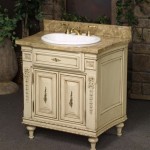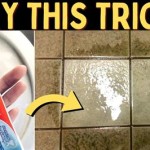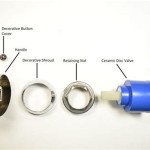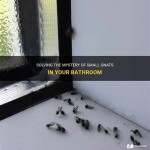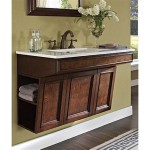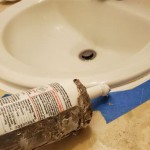Smelly Bathroom Sink Water: Essential Aspects to Consider
Understanding the essential aspects of smelly bathroom sink water is crucial for maintaining a healthy and pleasant bathroom environment. Various factors contribute to the development of unpleasant odors, and addressing these aspects effectively can help resolve the problem. This article explores the key considerations for understanding and resolving the issue of smelly bathroom sink water.1. Drain Blockage
Drain blockages are a common cause of smelly sink water. Buildup of hair, soap scum, grease, and other debris can obstruct the drainpipe, preventing proper water flow and promoting the growth of bacteria. Regularly cleaning the drain using a drain cleaner or a drain snake can help remove blockages and prevent odor formation.
2. P-Trap Issues
The P-trap, a U-shaped pipe beneath the sink, plays a crucial role in preventing sewer gases from entering the bathroom. Over time, the P-trap can become dry or filled with debris, allowing sewer gases to escape and create an unpleasant odor. Pouring water down the drain regularly or replacing the P-trap if it is damaged can help resolve this issue.
3. Bacteria Buildup
Moisture and organic matter in the bathroom create a favorable environment for bacteria to thrive. Bacteria can accumulate in the sink drain, overflow drain, and other areas of the sink, releasing foul odors. Regular cleaning with bleach or other disinfectants can help kill bacteria and prevent odor formation.
4. Hard Water Deposits
Hard water contains dissolved minerals, such as calcium and magnesium, which can build up inside the sink pipes and fixtures. These deposits can create a rough surface that traps bacteria and organic matter, leading to unpleasant odors. Using a water softener or installing a water filtration system can help reduce hard water deposits and improve water quality.
5. Faulty Fixtures
In some cases, faulty fixtures can also contribute to smelly bathroom sink water. A loose or damaged faucet or drainpipe can allow water to leak into the surrounding areas, creating a breeding ground for mold and bacteria. Inspecting the fixtures regularly and addressing any leaks or damages promptly can help prevent odor problems.
Conclusion
Understanding the essential aspects of smelly bathroom sink water allows for a targeted approach to resolving the issue. By addressing drain blockages, P-trap issues, bacteria buildup, hard water deposits, and faulty fixtures, it is possible to eliminate unpleasant odors and maintain a fresh and hygienic bathroom environment.
How To Treat Smelly Water Finkens

Your Household Water Quality Odors In Uga Cooperative Extension

Why Your Bathroom Sink Drain Smells
:max_bytes(150000):strip_icc()/__opt__aboutcom__coeus__resources__content_migration__mnn__images__2018__08__sink_drain-351af8e441034f319fe07f00c091d8b6.jpg?strip=all)
How To Clean A Smelly Drain Naturally

Does Your Water Smell Here S How To Fix It Quench

Why Does My Water Smell 6 Common Smells Their Causes

How To Get Rid Of Sink Smell Benjamin Franklin Plumbing

7 Causes Of A Sewer Smell In The Bathroom Hays

4 Ways To Clean A Smelly Drain Wikihow

How Can I Help A Stinky Bathroom Sink Drain Cleaning More
Related Posts
